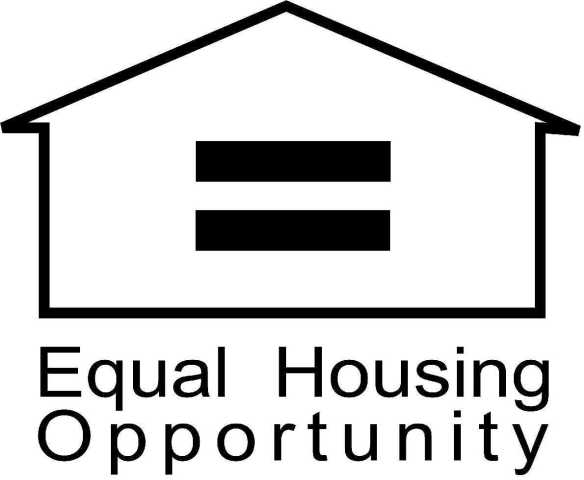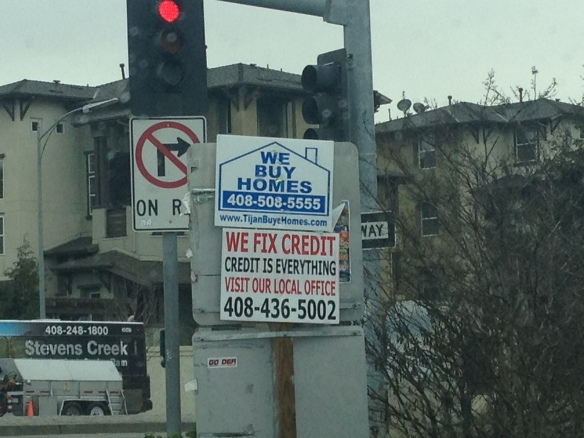 Editor’s note: If you haven’t applied for the Independent Foreclosure Review yet, there is still time, but the deadline is December 31, 2012. For more information, visit our blog: Independent Foreclosure Review Deadline is December 31, 2012. Learn How to Apply Here. Spanish: La fecha límite para La Revisión Independiente de la Ejecución Hipotecaria es el 31 de diciembre 2012. Aprender a aplicar aquí! Or visit the website: www.independentforeclosurereview.com, or call the program: 1-888-952-9105
Editor’s note: If you haven’t applied for the Independent Foreclosure Review yet, there is still time, but the deadline is December 31, 2012. For more information, visit our blog: Independent Foreclosure Review Deadline is December 31, 2012. Learn How to Apply Here. Spanish: La fecha límite para La Revisión Independiente de la Ejecución Hipotecaria es el 31 de diciembre 2012. Aprender a aplicar aquí! Or visit the website: www.independentforeclosurereview.com, or call the program: 1-888-952-9105
By JoAnn Parrott, Housing Counselor at Project Sentinel, one of the members of ForeclosureHelpSCC.
A credit report is more than a collection of financial information and statistics. A credit report displays and represents your financial picture. A credit report is an accounting of how you have handled your past finances and debt and is a gauge of how you will continue to do so in the future. The credit report determines if you are credit worthy or may be a credit risk to those who offer credit (also known as creditors). The credit report helps creditors decide who gets credit or who does not.
If you have been financially responsible in the past and have good credit, you probably don’t think twice about credit. It is just there for you whenever needed. However, if you have no credit or poor credit, managing your daily financial life may be difficult.
WHAT IS IN A CREDIT REPORT?
If you have never applied for personal credit, you probably don’t have a credit report history. But, if you have applied for and used credit in the past, a basic credit report consists of your name, current and recent addresses, Social Security Number, date of birth and current and previous employers. The report also displays each credit account registered in your name, the date the account was opened, the credit limit on a credit card or loan, the payment terms, the balance owed, the monthly payment amount, and a record of your payment history (i.e., how many times you paid on time or were late). This information is contained in your credit report even if you personally have not applied for credit but have agreed to be a co-signer or authorized user on someone else’s credit account.
TIP: If you are a co-signer on a credit card or loan account, you are responsible for the debt if the other party fails to keep the monthly payments current. If you are an authorized user, you are not responsible for the monthly payments or the balance due if the account is not kept current. So, be VERY careful about agreeing to be a co-signer on an application for credit.
A credit report also lists each time you have applied for credit – these are known as ‘inquiries.’ By viewing the ‘inquiries’, creditors can determine if you have applied for too much credit or have been recently approved for additional credit. If the number of applications or approvals is too high, creditors may deny you if it appears you are trying to acquire too much credit too quickly.
TIP: This can happen to new homeowners or young adults when they want to decorate a new home or apartment. If you apply for and are denied credit, this may have a negative impact on your credit report and credit score.
WHAT IS NOT IN A CREDIT REPORT?
Information NOT contained in a credit report consists of checking and saving account balances, bankruptcies that are more than 10 years old, charged-off debts or debts placed for collection that are more than seven years old, gender, ethnicity, religion, political affiliation, medical history or criminal records. Judgments generally remain on a credit report for 7 years from the date filed, whether the debt was paid or not. If paid, the judgment entry changes from UNSATISFIED to SATISFIED but still remains for the required length of time. Unpaid tax liens remain indefinitely.
NO CREDIT? WHAT SHOULD YOU DO?
In the everyday world of credit, there are two types of credit cards and loans – Secured and Unsecured.
SECURED CREDIT CARD: If you have poor credit or no credit and know you will have a need, you may want to apply for a secured credit card. A secured credit card is an account in which you deposit your own money (generally a minimum amount) to be used for future credit transactions. A secured credit card gives you the ability to use the money (up to a certain amount) as a credit card – i.e. charge movie tickets or order a pizza – until you can apply for a less restrictive unsecured credit card. Most secured credit cards do not allow the total amount of money deposited into the account to be consumed by charge transactions.
The creditor retains a portion of the money as a ‘cushion’ to cover unexpected events, such as non-payment. If your charges exceed the allowed amount, there can be substantial fees and penalties applied. If you don’t keep the account in good standing, the creditor can deny future credit transactions you attempt to do. Not a happy thought if you want to treat a friend to lunch and your card is denied! In some cases, if the past due amount becomes too high; the account may be closed or suspended. The account will continue to accrue interest charges, fees and may even be subject to collection action. Most secured credit cards also carry annual expense fees.
TIP: Secured credit cards physically look the same as unsecured credit cards. There is no way of telling that your card is a secured card. After a period of time if you have established a positive payment history and adhered to the secured credit card terms, you may apply for an unsecured credit card or loan. There is no specific time period to do this. Just be cautious about applying for too many cards.
SECURED CREDIT LOAN: This type of loan is used for high dollar purchases that cannot be paid in full each month – i.e. the purchase of a car or house. This type of loan is for a specific dollar amount and time period. If the loan payments are not kept current, the owner of the loan can repossess or take back the item – i.e. the car. In this case, the car is security for the debt. Generally without exception, a mortgage loan is secured by the property. If the mortgage payments are not made, the mortgage holder will take the property in a foreclosure sale.
UNSECURED CREDIT CARD: An unsecured credit card is a line of credit that is available to you with no restrictions (up to the credit limit), as long as the account is in good standing. For example, if you charge the purchase of clothing on your unsecured credit card and you don’t pay the full or minimum amount by the Due Date, the creditor will not repossess or take back the clothes. However, the account could still be assessed fees and penalties and may be closed or suspended if the matter is not resolved. Any past due payments will be recorded on your credit report.
UNSECURED CREDIT LOAN: This type of loan can be for any amount and time period, but is generally not a standard product offered by creditors for large loan amounts. Creditors want their loans secured by an item of value if there is a default on the account. The best use of this loan type would be for personal loans among family members or friends where, if payments are not made, no property is attached to the loan and therefore there is no repossession.
TIP: For most secure and unsecured credit card accounts, it is recommended that the full amount charged be paid in full each month to avoid interest charges and to assist in building a good credit history. Keeping any loan in good standing is a good idea.
HOW TO GET A COPY OF YOUR CREDIT REPORT?
On November 22, 2003, through the Fair and Accurate Transaction (FACT) Act, consumers were given the right to obtain a free copy of their credit report every 12 months from each of the 3 major credit bureaus. These credit bureaus collect and analyze credit transactions for their clients (AKA creditors) i.e., banks, credit unions, and retail establishments for example. The 3 major bureaus are: Experian (www.experian.com, 1-888-397-3742), TransUnion (www.transunion.com, 1-800-916-8800), and Equifax (www.equifax.com, 1-800-685-1111).
To obtain a copy of your credit report or reports, you can contact the credit bureaus directly, visit their websites, or use the website: www.annualcreditreport.com . This website provides access to each credit bureau report. A consumer can apply online for a single report or for all 3 reports at the same time. There are companies who will help you track the contact and accuracy of your credit report for a fee.
TIP: It is recommended that a consumer stagger their credit report requests every 4 months between each bureau. In most cases, the same credit information is on each bureau’s report, but sometimes in a slightly different format. By staggering the reports, a consumer can track activity over the time period as well as the contact of each report.
TIP: Each time YOU look at your own credit report, there is no ‘inquiry’ activity recorded. However, each time you apply for credit through a third party, there is an ‘inquiry’ recorded. So, if you apply for too much credit, the next third party you apply to will see the ‘inquiry’ activity and possibly may deny the application for credit due to excessive applications. Also, there is a chance that the volume of applications may affect your FICO score. BE CREDIT SMART!
WHAT IS A FICO CREDIT SCORE AND WHY IS IT IMPORTANT TO YOU?
Attached to each report is a credit score known as a FICO (Fair Issac Corporation) score. The FICO score can range from 300 to 850, but the majority of scores usually fall within the 600s and 700s. Your goal is to have the highest number possible based on your use of credit and the history contained in your credit report. Each one of the credit bureaus has their own FICO score criteria. A FICO score may differ between the 3 credit bureaus because not all creditors submit to each bureau.
A FICO score is a combination of many credit associated items. Based on the type of credit, a FICO score is made up of the following percentages:
- 35% for history;
- 15% for length of credit;
- 10% for newly acquired credit;
- 10% for types of credit; and
- 30% for amount of debt owned on credit cards and loans. A few examples of what can lower a FICO score are: late payments, too high of credit used against credit limit, past due payments, too many credit cards, judgments, collections, or too many applications for credit.
It is possible to obtain your FICO score by contacting each credit bureau for their process or at the www.annualcreditreportcom website, but there is a fee. However, if you pay a credit reporting and tracking agency, you may be able to obtain the FICO score free of charge.
If you discover errors within your credit report, you should contact the providing bureau directly. If they don’t correct the errors, you can contact the Consumer Financial Protection Bureau (CFPB) at 1-855-411-2372 or TTY/TDD 1-855-729-2372 and/or file a complaint with the CFPB at http://www.consumerfinance.gov/blog/headline-now-accepting-credit-reporting-complaints/ ; or send a letter to Consumer Financial Protection Bureau, P. O. Box 4503, Iowa City, Iowa 52244.
If you are a homeowner living in San Jose or Sunnyvale and are struggling with your mortgage, please contact ForeclosureHelpSCC, a program funded by the City of San Jose and the City of Sunnyvale at (408)-293-6000 or visit our website: www.foreclosurehelpscc.org. Our HUD-approved counselors can help you evaluate your options, learn more about federal and state programs that may help you with your mortgage issues, and will help you create a plan forward.
Please note: All content included in the ForeclosureHelpSCC blog is provided for information only and should NOT be considered legal or tax advice. If you have any questions, please feel free to contact us on our hotline: (408)-293-6000, or visit our website: www.foreclosurehelpscc.org or send us an email: help@foreclosurehelpscc.org.
Si usted es dueño de una casa en San José o en Sunnyvale y están luchando con su hipoteca, por favor póngase en contacto con ForeclosureHelpSCC, un programa financiado por la ciudad de San José y la ciudad de Sunnyvale, al (408) -293- 6000, o visite nuestro sitio: www.foreclosurehelpscc.org. Nuestros consejeros aprobados por HUD puede ayudarle a evaluar sus opciones, aprender más acerca de los programas federales y estatales que pueden ayudarle con sus problemas de hipoteca, y le ayudará a crear un plan para seguir.
Por favor, tenga en cuenta: Todos los contenidos incluidos en el blog ForeclosureHelpSCC se proporciona únicamente a título informativo y no debe ser considerada como consejo legal o fiscal. Si usted tiene alguna pregunta, por favor no dude en contactarnos a nuestra línea directa: (408) -293-6000, o visite nuestro sitio: www.foreclosurehelpscc.org o envíenos un correo electrónico: help@foreclosurehelpscc.org.




